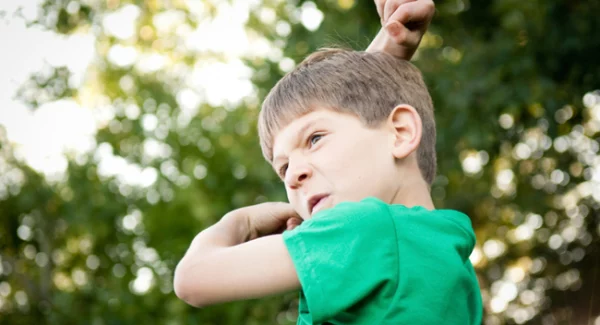During their development, children may face strong emotions, especially when they feel frustrated or their needs are unmet. One natural response from children is to exhibit anger and display strong-willed behavior as a way to deal with these emotions. However, not all angry behaviors stem from ordinary frustration; sometimes they may reflect a lack of emotional regulation skills. Some studies suggest that these behaviors may indicate that the child has not been equipped with the necessary tools to cope with challenging situations in daily life.
Children sometimes tend to express anger when they feel pressured or lack the attention they need from their parents or caregivers. “When children feel unheard or misunderstood, they will seek to express their emotions through negative behavior,” according to research by the American Academy of Pediatrics (AAP), 2019. This occurs not only when children face difficult situations but also as a result of a stressful family environment or ineffective communication. Children need to learn how to recognize and manage their emotions, and this can be taught with the support of adults.

One important solution is teaching children how to regulate their emotions and solve problems in a healthy way. Behaviors like deep breathing, using words instead of violent actions, or seeking support from adults are methods that can help children improve their self-control. According to psychologist John Gottman’s research, 2004, children who learn to recognize and manage their emotions early tend to develop healthier social relationships as adults. In this way, children not only learn to control their anger but also develop conflict resolution skills in society.
“If adults respond to children’s anger by yelling or threatening, children may feel hurt and become even more frustrated,” according to research by Harvard University, 2021.
However, the way adults respond to children’s anger also plays a crucial role. Maintaining a patient and non-violent response is necessary. “When adults remain calm and patient, children will find it easier to learn how to manage their own emotions,” according to advice from child psychologist Daniel Siegel, 2018.

Another solution is encouraging children to engage in activities that help reduce stress, such as sports, arts, or physical games. A survey from the Child Mind Institute (2022) shows that engaging in these activities helps children develop problem-solving skills and minimize negative behaviors caused by stress. Furthermore, encouraging children to share their emotions and receive support will help them feel loved and cared for, thereby reducing unnecessary anger outbursts
In today’s society, where factors such as technology and academic pressure are increasing, teaching children how to manage their emotions is not only an essential skill but also a key to helping them succeed in the future. When children learn to self-regulate their emotions, they not only become more resilient but also find it easier to integrate and develop social skills in their surrounding environment.


HPX24h > Parenting Tips > Causes and Solutions for Aggressive and Strong-Willed Behavior in Children
Top Reads from This Category
Parenting Tips
How to Talk to Children About Alcohol (Ages 6-8)
Parenting Tips
Teaching Children Respect: Simple Tips for Parents with Kids Aged 6 to 8
Parenting Tips
My Child Is Pulling Out Her Hair: How Should I Handle This?
Parenting Tips
How Much Sleep Do Children Really Need?
Parenting Tips
Tips for Helping Preschoolers Develop Healthy Sleep Habits
Parenting Tips
How to Talk to Children About Poverty and Homelessness (Ages 5-8)
Parenting Tips
How to Stop Preschoolers from Putting Everything in Their Mouth?
Discover New Topics
Fitness
Effective And Safe Methods To Strengthen Your Knees: Proven Tips For Optimal Performance
Space
The Youngest Recorded Supernova: Unveiling the Mystery of a Star’s Death
Space
Could Our Universe Have Collided With Another Universe Billions of Years Ago?
Science
Modular Prosthetic Limb Technology: Breakthrough Discovery Enhances Motion for Disabled Individuals
Animals
Can Hyena Dogs Be as Smart as Primates?
Fitness
Yoga: The Key to Physical and Mental Balance
Animals
Why Bedbugs Thrive Through Inbreeding
Health
The Link Between Daytime Sleep and Alzheimer’s Disease: What You Need to Know
Healthy Eating
Understanding the Important Role of Carbohydrates in Health
Parenting Tips
Sleep Apnea in Preschoolers: Understanding It to Protect Your Child’s Health
Animals
The Secret Behind Turtle Eggs Hatching at the Same Time: A Fascinating Reason
Fitness
Exercise – The Key to Enhancing Your Quality of Life
Fitness
Tai Chi: The Secret to Improving Balance and Relieving Pain Effectively